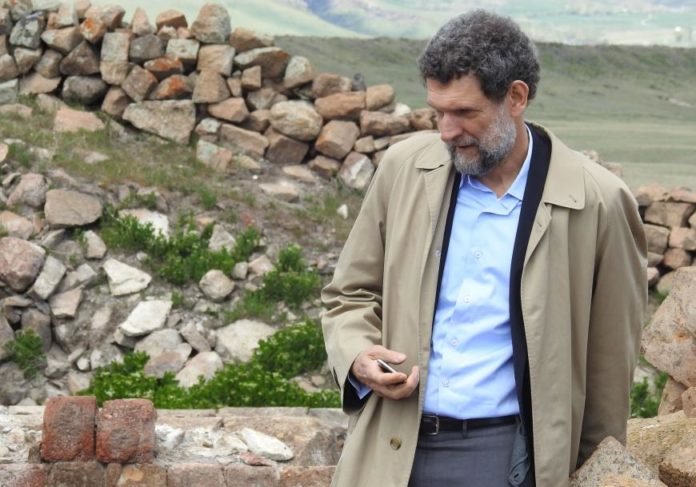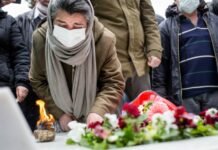The International Commission of Jurists (ICJ), Human Rights Watch (HRW) and the Turkey Human Rights Litigation Support Project in a statement on Monday called on Turkish authorities to immediately release human rights defender Osman Kavala in compliance with a Council of Europe Committee of Ministers’ decision on September 3, 2020.
The decision followed a Committee of Ministers hearing to assess the execution of the judgment of the European Court of Human Rights (ECtHR) in Kavala’s case. The committee, acting in its supervisory capacity for court judgments, ordered the Turkish authorities “to ensure the applicant’s immediate release,” pointing to “a strong presumption that his current detention is a continuation of the violations found by the Court.”
“After the finding by ECtHR that Kavala’s detention is unlawful, the Committee of Ministers has affirmed that Turkey is continuing to violate his rights by keeping him in detention,” said Roisin Pillay, director of the Europe and Central Asia Program at the ICJ. “European Court rulings are binding, and Osman Kavala should be released immediately.”
Kavala has been held in detention since November 2017, initially on bogus allegations that he used the 2013 Istanbul Gezi Park protests as a pretext for an attempt to overthrow the government, and later that he was involved in an attempted military coup on July 15, 2016. On February 18, 2020 Kavala and his eight co-defendants were acquitted of charges of “attempting to overthrow the government by force and violence” in the Gezi Park trial.
But Kavala was not released, and a court again ordered his immediate detention on one of the grounds of his initial detention on November 1, 2017, namely the charge of “attempting to overthrow the constitution by force and violence” because of an ongoing coup attempt-related investigation into him. Turkey’s president, Recep Tayyip Erdoğan, had publicly criticized his acquittal just before he was detained again. Weeks later a court ordered his detention a second time on the charge of “espionage,” but under the same investigation file on the coup attempt and relying on the same evidence.
The ECtHR on December 10, 2019 had found a violation upon reviewing Kavala’s application, calling for his immediate release. On May 12 the rights court rejected an appeal from the Turkish government with which the court’s ruling became final. Turkey, however, refused to abide by the ruling.
“In the absence of facts, information or evidence showing that Mr. Kavala had been involved in criminal activity, he could not reasonably be suspected of having attempted to overthrow the Government by force or violence,” the court had said in its ruling.
According to the human rights watchdogs’ statement, the judgment in Kavala’s case is particularly significant because it is the first final ruling of the ECtHR against Turkey in which the court determined that in interfering with an individual’s rights, Turkey acted in bad faith and out of political motivations, violating Article 18 of the European Convention on Human Rights. The court said that by detaining Kavala since November 2017 and prosecuting him, the Turkish authorities had “pursued an ulterior purpose, namely to silence him as human rights defender.”
“The decision by the Council of Europe Committee of Ministers confirms our submission that political considerations are behind the court orders prolonging Osman Kavala’s detention, and that there has been a concerted official effort to prevent Kavala’s release,” said Emma Sinclair-Webb, Turkey director at HRW. “Instead of complying with the European Court’s judgment, Turkey has continued to violate Kavala’s human rights.”
“The targeted harassment in Turkey of rights defenders is part of a wider practice of arbitrary detentions and abusive prosecutions of journalists, elected politicians, lawyers, and other perceived government critics,” said the watchdog statement.
“The campaign of persecution against Osman Kavala and the failure to release him and drop all charges have perpetuated a chilling environment for all human rights defenders in Turkey,” said Ayşe Bingöl Demir, co-director of the Turkey Human Rights Litigation Support Project. “Ending this blatantly unlawful detention, which has been ongoing for over 1,000 days, will not only play a role in preventing further violations to Osman Kavala’s rights, it will also give a strong signal to the human rights defenders community that the oversight mechanisms in place to ensure Turkey’s compliance with its international human rights obligations can still be effective.”















